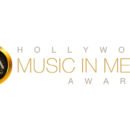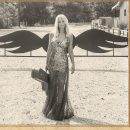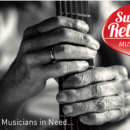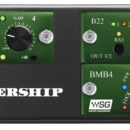 DJ Advice From Mick, DJ/producer Feb.
DJ Advice From Mick, DJ/producer Feb.
• Play music you really enjoy. Now, every DJ in the world—from the guy doing your uncle’s lame wedding to Tiësto—occasionally has to play some songs they don’t like. However, finding a way to remix those songs, or sandwich them between songs you do like that make sense sonically—that’s how you really create your identity as a DJ. Just make sure you keep people dancing or vibing—whatever the mood calls for.
• Recognize that song selection is way more important than DJ-Battle skills. Not every basketball player is going to be LeBron James—but they have to understand the rules before they step on the court. That said, I’d much rather hear a DJ with amazing selection and up-and-coming mixing skills than a guy who can scratch with his left testicle and plays horrible music all night.
• Vary your set lists. A few months ago, a mega-popular DJ got “busted” in a national magazine for admitting he just plays the same songs in the same order every night. This isn’t fun, nor is it cool. Find new ways to play the same songs. If they are your own personally produced songs, remix them to add something new for the people who paid money to see you perform. This just isn’t good for your audience—it’s good for you and your mind. I feel super refreshed when I go into a gig with a crate of new awesomeness. New music is like a weapon, so sharpen your sword.
•Be respectful to everyone you meet in nightlife. From the doorman to the bartender, and all the way up the food chain to the club owner. You never know where that person will end up next, and how they can help (or hurt) your career. One person telling people you’re an arrogant diva holds way more weight than 50 people saying you’re a nice guy. However, that guy pouring you drinks could be the Director of Marketing next year, so tip him if he is good, and be nice even if he isn’t.
MUSIC BUSINESS
Some people get into music because of the lifestyle. But you’ve got to work. We practiced eight hours a day and played five nights a week on the strip in Vegas to support ourselves in the beginning. We had no money. And we learned, like, 60 cover gigs as well as writing our own songs and did that for years and played to empty bars.
- Dan Reynolds of Imagine Dragons Jan.
Until you’re a big enough star that you don’t need press, say yes [to opportunities]. I’m always surprised when bands are not thankful. They’re like “Oh, this is stupid. This is not why I joined a band.” Well, if you only want to play music, stay in your basement. It’ll stay pure. You won’t have to do anything you don’t want to do, other than working a normal job. You could listen to a terrible manager at Starbucks scream at you or you could talk about yourself to somebody. My advice would just be to roll with it and have a good time. - J Roddy Walston of J Roddy Walston and the Business July
 You may have already signed up with a PRO. But here’s what you may not know. ASCAP, BMI and SESAC do not pay the same rates for all types of music royalties. They have negotiated radically different rates for radio and domestic TV performances with vocals.
You may have already signed up with a PRO. But here’s what you may not know. ASCAP, BMI and SESAC do not pay the same rates for all types of music royalties. They have negotiated radically different rates for radio and domestic TV performances with vocals.
Make sure to choose the right organization for your specialty. You could potentially lose thousands of dollars if you have joined a PRO that pays less for what it is that you do. Terminating your PRO contract is not easy and your show could be off the air by the time you are able to switch to the better paying PRO.
There are strict dates for termination and some of your catalog will not be able to follow you to your new PRO. - Susan Hyatt, singer/songwriter, artist coach and author June
The core fundamentals never change. If you don’t have good music, you’re not going anywhere. If you don’t have a great work ethic, you’re not going anywhere. And if you don’t have a good team, you’re not going anywhere. You’ve also got to take risks, because if you’re not willing to you can’t expect others to take risks for you. - Sat Bisla, Pres./Founder A&R Worldwide May
I think there’s such a thing as oversaturating your fans. If my favorite band in the world put out a 10-album compilation, I’d be like, “Eh... This is too much for me to comprehend.” But on the same note, I think it’s important for bands to continually give their fans something to be excited about. - Dan Reynolds of Imagine Dragons Jan.
It is vital that bands schedule business meetings, separate from rehearsals. The biggest problem I see is that bands will meet to refine the music but not meet to deal with their business issues. Meetings should be held when there are NOT problems—clearing the air BEFORE problems come up. Talk about important things like money, ownership of the band name and publishing.
- Lee Jay Berman, professional mediator Jan.
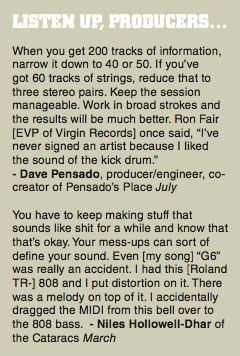 If somebody wants to be a music lawyer, they’re best served getting other kinds of experience, because when you’re an entertainment lawyer you’re kind of full-service. If your client gets sued and you don’t understand the process of litigation, I don’t know how you supervise it. You turn it over to a litigator and then you have to rely on that person to do the right job. - Gary L. Gilbert, attorney Aug.
If somebody wants to be a music lawyer, they’re best served getting other kinds of experience, because when you’re an entertainment lawyer you’re kind of full-service. If your client gets sued and you don’t understand the process of litigation, I don’t know how you supervise it. You turn it over to a litigator and then you have to rely on that person to do the right job. - Gary L. Gilbert, attorney Aug.
When you sell through iTunes, you have no idea who bought your album, T-shirt or CD. When they buy directly from your website, you give them the opportunity to sign up for your mailing list. That artist-to-fan connection is extremely important. That’s how you’re able to remain relevant, by sending them remixes or acoustic videos. You can’t do that through iTunes or Spotify. You can only do that through your website and mailing list. - David Dufresne of Bandzoogle Oct.
EDUCATION
There can be a lot of reasons [some students don’t succeed in music school]. Some use classes to network rather than learn—they’ll hound you about getting them a deal. And, there are a few who like talking better than listening and will ask 10,000 questions that have little relevance to the subject matter, and might even debate what you’re trying to teach them.
- Owen Husney, UCLA Extension May
Belmont helped us get our feet wet, and in the relationships and with the contacts that we made. But getting out on the road, learning the hard way, and learning on our own has been the best way. - Brian Kelley of Florida Georgia Line Sept.




